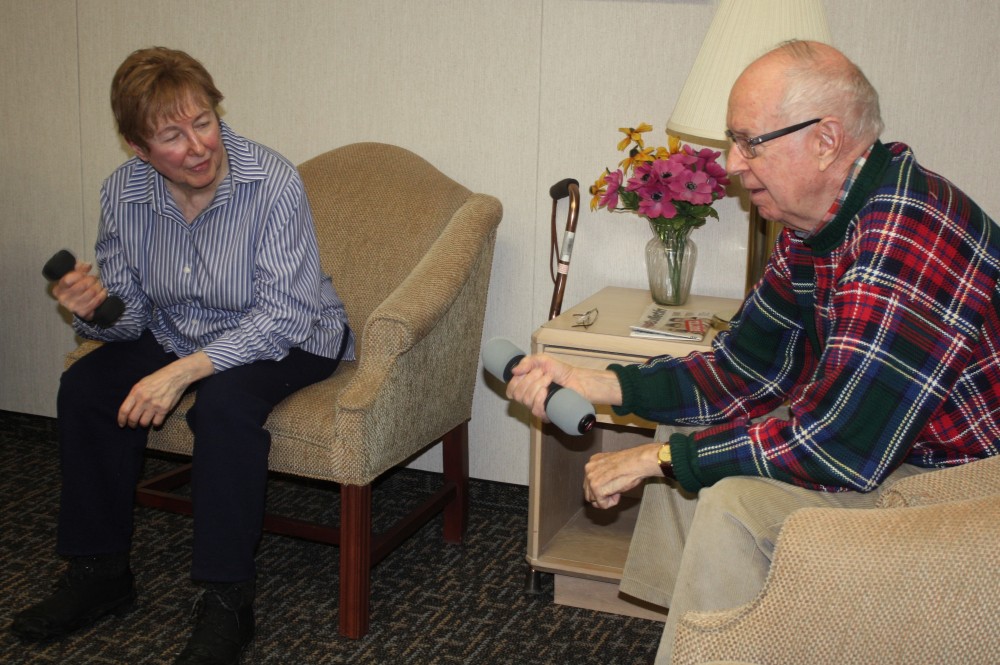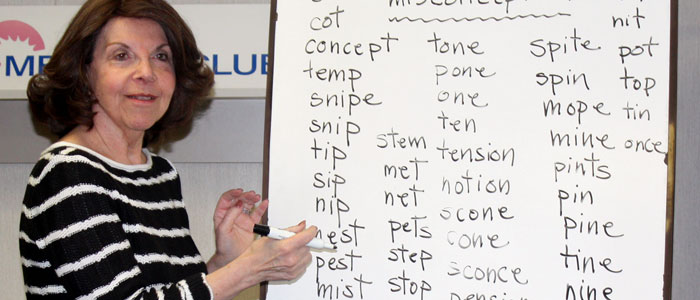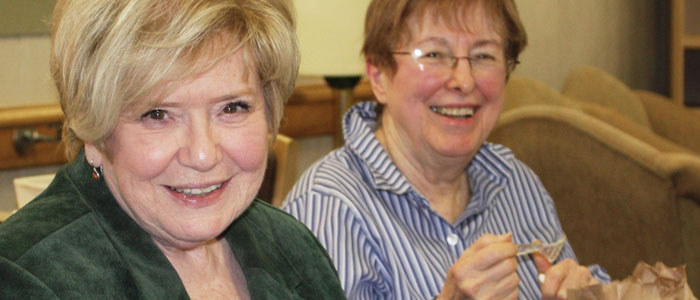Fighting Forgetfulness
By Vivian Henoch, Editor myJewishDetroit
March 1, 2014
By Marla Janness, PR/Communications Associate, JVS
We’ve all been there — forgetting where you parked the car, misplacing your keys, blanking on a word.
While these types of occasional memory lapses are a common concern, older adults worry about memory loss. The good news is forgetfulness is not an inevitable part of the aging process.
“It may be more difficult for us to learn new things or recall information as we age,” explains Ronnie Berman, coordinator of the JVS Memory Club. “However, the brain is capable of producing new brain cells at any age, and there are a lot of things older adults can do to keep their minds sharp and improve memory skills.”
The JVS Memory Club is a unique program that provides active seniors with tools to fight off forgetfulness. The Club offers weekly sessions which meet from 10 a.m. to 2 p.m. on Tuesdays and Thursdays at the JVS Rose and Sidney Diem Building in Southfield. Thanks to a grant from The Jewish Fund, a Monday session was recently added at the Eugene and Marcia Applebaum Jewish Community Campus in West Bloomfield.

Evelyn and David Kreger began attending Memory Club at JVS several years ago. David, a retired hospital administrator, was in his late 70s and had begun to worry about his memory lapses. Evelyn saw a Memory Club flyer, and the couple decided to join the club. Together, they attended for two years before David passed away in 2011.
“I first came mainly for him,” says Evelyn. “But I’ve continued because I enjoy the people very much. It’s a very welcoming group and has become an extended family.”
“I also like the exercises,” she adds. “I can feel my brain working.”

Exercises for the brain
In a living room-like setting, Memory Club members practice mental exercises to stimulate their brain and boost their memory. They play memory-enhancing games like Scattergories, Boggle and Scrabble, and do brainteasers and puzzles to enhance their word skills, critical thinking, memory and visual perception. Participants keep a notebook filled with additional activities to complete at home.
“A strong body equals a strong mind, so physical exercise, including yoga, is another important element of our program,” explains Ronnie. “We also enjoy great conversations. We talk during lunch about our families, current events and favorite memories. We take occasional field trips and discuss what we’ve seen and learned. Social interaction is an excellent way to stimulate the brain.”
Now at age 78, Evelyn notices she forgets things occasionally, but Memory Club has strengthened her ability to recall information and inspired her to stay involved in other activities. She attends a book club and takes classes through the Society of Active Retirees (SOAR). A member of Birmingham Temple, she helps with community outreach initiatives, knitting hats, mittens and scarves for Alternatives for Girls and packing lunches for the hungry. She may even start writing her memoirs, she says, to preserve treasured family memories for her four grandchildren.
“Members enroll because they want to improve their memory,” explains Ronnie. “Most Memory Club participants live independently and drive themselves to the meetings. They come because they want to stay sharp.”
Ronnie teaches participants proven techniques to help them remember, such as chunking (grouping things by common features), repeating new information and using several of their sensory channels. Members also get practical tips, such as keeping important items like their keys, wallet or purse in the same spot. Trying all these techniques helps Club members discover which approaches work best for them so they can develop a system to attain their own peak performance.
For more information about the Memory Club, contact Ronnie Berman at (248) 233-4247 or rberman@jvsdet.org or visit www.jvsdet.org/memoryclub.




